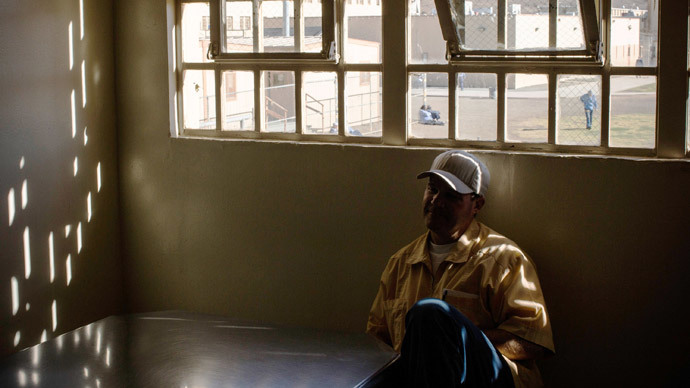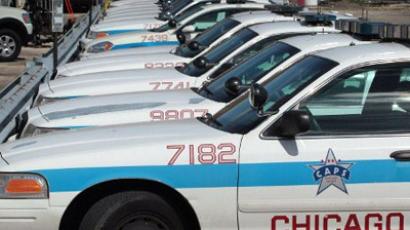Mentally ill homeless vet 'baked to death' in scorching 100+°F NYC jail cell

A mentally ill veteran was “basically baked to death” in his Rikers Island jail cell last month as temperatures reached more than 100 degrees, a New York City official told the Associated Press.
According to four unnamed city officials, 56-year-old James Murdough reportedly did not open a vent in his cell that would’ve allowed for cool air to flow in and lower the temperature, something most inmates did. The officials also stated that no one checked on Murdough’s condition for hours, which constitutes a violation of standard procedure.
Originally placed on Rikers Island for observation purposes, Murdough reportedly took anti-psychotic and anti-seizure medicine. He was previously charged with trespassing, and was located in the prison unit responsible for handling those with mental illnesses.
The officials stated that Murdough’s medication potentially made him more susceptible to heat, while early reports from the autopsy conducted suggest he died of extreme dehydration or heat stroke. The medical examiner’s office, however, officially stated that further tests were necessary in order to pinpoint the cause of death.
While the Department of Corrections has initiated an internal
investigation into the matter, the New York City justice system
is coming under fire for what’s being billed as a failure on
every level. Advocates for mentally ill inmates argue that
Murdough should have not been arrested in the first place, and
that his bail should not have been set at an unreasonable level.
Meanwhile, the observation unit charged with supervising mentally
ill inmates is being criticized for failing to do so properly.
"So Mr. Murdough violated the trespass law. So he suffered
the consequences by going to jail," attorney Jennifer Parish
of the Urban Justice Center’s Mental Health Project told the AP.
"But the jail system committed more serious harm to him. And
the question is, 'Will they ever be held responsible?'"
When Murdough was found dead in his cell, it had been four hours
since authorities last checked on him. By this time, the
officials said both the temperatures in the cell and in his
internal body were at least 100 degrees. Even that number could
have potentially been higher since the cell was closed off for
hours beforehand.
Corrections Department spokesman Robin Campbell admitted the
temperature was “unusually high,” but that the necessary
action has been taken to address the issue. Standard procedure,
meanwhile, dictates that inmates in the mental observation unit
need to be observed every 15 minutes as part of a suicide watch.
According to Murdough’s mother, Alma, her son suffered from
bipolar disorder and schizophrenia. She had not seen him in three
years, and was informed of his death only after the AP contacted
her about the situation last week.
"He was a very lovely, caring guy," she told the news
service. "He had beer problems. Drinking beer. That was his
downfall. Other than that, he was a very nice guy. He'd give you
the shirt off his back."
New York City Board of Correction member Catherine Abate stated
recently that Murdough should have been referred to a
psychiatrist after his most recent arrest rather than placed in
Rikers Island. According to the AP, approximately 40 percent of
the 12,000 inmates in the facility are mentally ill, with many
critics suggesting the staff on hand is not trained adequately to
monitor and care for them.
One of Murdough's sisters, Wanda Mehala, said that the family is
demanding answers regarding her brother's death.
"We want justice for what was done," she said. "He
wasn't just some old homeless person on the street. He was loved.
He had a life. He had a family. He had feelings."














